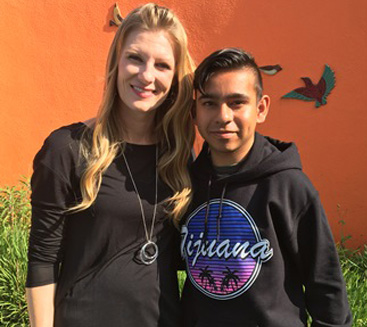Overview
A kidney transplant surgery can give a child with chronic kidney disease a new life. A healthy kidney means freedom from dialysis, multiple injections and blood transfusions, along with relief from debilitating symptoms such as weakness and fatigue. A transplant surgery can be life-changing, allowing children to be more active, attend school, travel, have fewer dietary restrictions and just feel better in general.
Our Pediatric Kidney Transplant Program
In 2001, UC San Diego brought its established pediatric abdominal transplant program to Rady Children’s to help provide transplant patients with specialized pediatric services. Since that time, our transplant team of healthcare professionals/transplant surgeions have performed over 100 pediatric kidney transplants and maintained outcomes well above the national average. The pediatric kidney transplant program is part of the Division of Nephrology, which provides comprehensive care to all pediatric patients with kidney disease, ranging from general kidney problems to dialysis and transplants. The division is routinely recognized as one of the best in the country by U.S. News & World Report.

Tiffany gave Alejandro the ultimate gift — her kidney. Read about their heartwarming reunion.
Our pediatric kidney transplant team works with you or your child before, during and after the kidney transplant surgery. We take a multidisciplinary approach during the transplant process, working closely with the Urology and Rheumatology programs as well as other departments to help address the many common causes of kidney disease. We have social workers, pharmacists, nurses, child life specialists and financial coordinators who specialize in the care of the kidney transplant patients, and this team follows your child through their transplant process and journey. We are able to provide desensitization therapies for patients with high antibody levels and participate in paired exchange programs for pediatric patients with living donors who are not compatible.
Articles
In the News
- Joven Hispano Busca el Regalo de Vida, un Nuevo Riñón, Telemundo, features Dean Nourbakhsh, DO
- Teen Gets Kidney Transplant, Graduates High School, nbcsandiego.com, features Rady Children’s Hospital